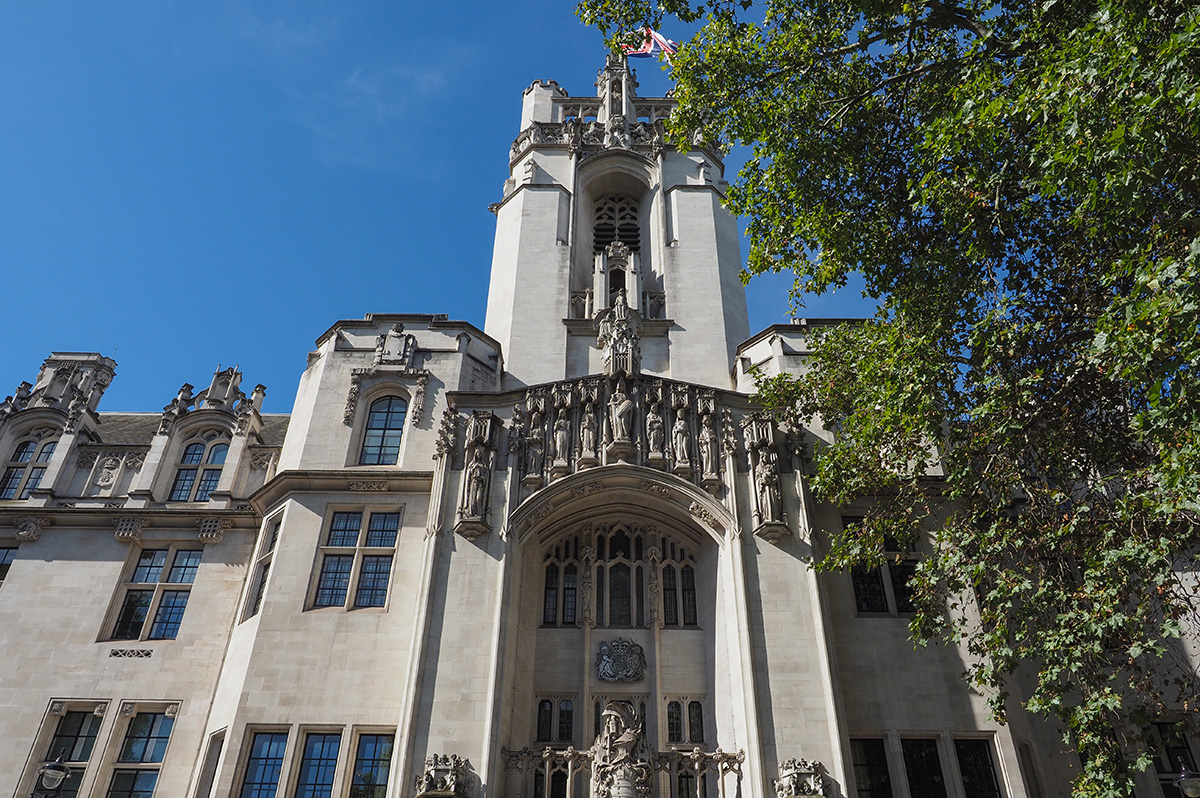News
Rep. Forbes under fire for opposing gay GOP candidates
Backlash over congressman’s anti-gay ‘crusade’


Rep. Randy Forbes (R-Va.) has expressed concerns over Republican money going to support gay congressional candidates. (Photo public domain)
Gay Republican groups are criticizing Rep. Randy Forbes (R-Va.) over his reported comments that gay congressional candidates should not receive money from the Republican Party to run for office.
The groups were responding to an article published late Thursday in Politico, which cited a half-dozen anonymous sources as saying Forbes has undertaken “a lengthy crusade” to convince the National Republican Congressional Committee to drop support for gay Republican candidates.
Gregory Angelo, executive director of the Log Cabin Republicans, said Forbes’ position indicates he wants to relegate Republicans to minority status in the U.S. House.
“You either want Republicans to win, or you don’t — it’s as simple as that,” Angelo said. “Apparently, Congressman Forbes does not. Thankfully, the real GOP leaders in the House know how to pick winners, and their money is on Richard Tisei and Carl DeMaio.”
Among the gay Republican congressional candidates cited by Politico are Massachusetts Republican Richard Tisei, who narrowly lost in his challenge to unseat Rep. John Tierney (D-Mass.) last year and is considering a rematch, as well as Carl DeMaio, who’s seeking to represent the San Diego area in the House.
Another gay candidate seeking to carry the Republican banner in a bid for a congressional seat not mentioned in the Politico piece is Dan Innis, a University of New Hampshire administrator in a same-sex marriage who’s seeking to unseat Rep. Carol Shea-Porter (D-N.H.).
In a statement provided to the Blade, DeMaio said he focused on winning his congressional race and not the comments from the Virginia politician.
“Under Mr. Forbes, San Diegans are not focused on sexual orientation,” DeMaio said. “To the contrary, I’m winning this district because San Diegans are looking for fresh leadership in Washington to reform wasteful government spending, revitalize the economy and hold government programs accountable.”
Tisei didn’t immediately respond to the Washington Blade’s request for comment, and Innis couldn’t be reached.
Ross Hemminger, co-director of GOProud, said Forbes’ behavior is “disappointing.”
“This type of rhetoric is symptomatic of someone who does not understand the importance of being a team player,” Hemminger said. “Our party cannot win elections by appealing to the lowest common denominator amongst the minority of American voters. This type of rhetoric embarrasses Republicans everywhere, and it is not helpful.”
U.S. House Speaker John Boehner (R-Ohio) was succinct when asked about the issue during his news conference on Thursday.
In response to a question about whether Republican money should go to gay congressional candidates, Boehner replied, “I do.”
Drew Hammill, a spokesperson for House Minority Leader Nancy Pelosi (D-Calif.), accused Boehner of being disingenuous in his answer and took the opportunity to bash gay Republican candidates as well as the speaker’s failure to bring up the Employment Non-Discrimination Act for a vote.
“LGBT Americans are more interested in passing ENDA and expanding freedom and equality in our country than Speaker Boehner’s insincere efforts to marry himself to extreme gay Republican candidates,” Hammill said.
Forbes, who scored “0” in the Human Rights Campaign’s most recent congressional scorecard, is known for his anti-LGBT record in Congress.
According to the Southern Poverty Law Center, the Virginia Republican has supported the anti-gay American Family Association and was set to headline one of its fundraisers before canceling at the last minute.
Forbes is among the 59 sponsors of a proposed U.S. constitutional amendment in the House that would ban same-sex marriage throughout the country. As ThinkProgress notes, Forbes spoke out against ENDA on the House floor in 2007, saying the LGBT anti-bias bill will lead “activist judges to redefine the institution of marriage.”
In the Politico piece, Forbes is quoted as saying he believes Republican leaders can “do whatever they want to do” in terms of giving money to congressional candidates, but is concerned about House members being asked to contribute to the campaigns.
“There would be a different situation if they tried to force other members to give money,” Forbes said.
As Politico notes, the NRCC is partially funded by collecting tens of millions of dollars from House Republicans, who pay dues to the organization.
NRCC Chair Rep. Greg Walden (R-Ore.) was quoted as saying in Politico that the policy of his organization is to contribute money to Republican candidates — even if they identify as gay.
“Our decisions on the Republican nominees we support will not be based on race, gender or sexual orientation but will be based on the strength of their candidacy and their ability to defeat Democrats,” Walden said.
News is breaking now over Forbes’ objections to gay congressional candidates, according to Politico, amid speculation over who’ll replace Rep. Buck McKeon (R-Calif.) as chair of the House Armed Services Committee after his expected retirement next year.
Forbes has been mentioned as a possible successor, but McKeon’s chief of staff has reportedly said his boss expects Rep. Mac Thornberry (R-Texas) to be the next chair.
“Throwing solid conservative contenders under the bus in a cynical and hopeless attempt to gain a chairmanship is beyond the pale,” Angelo said. “Congressman Forbes would do more to help his image by supporting efforts to grow the Republican House majority rather than undermine it.”
U.S. Military/Pentagon
Pentagon urged to reverse Naval Academy book ban
Hundreds of titles discussing race, gender, and sexuality pulled from library shelves

Lambda Legal and the Legal Defense Fund issued a letter on Tuesday urging U.S. Defense Secretary Pete Hegseth to reverse course on a policy that led to the removal of 381 books from the Nimitz Library of the U.S. Naval Academy in Annapolis, Md.
Pursuant to President Donald Trump’s executive order 14190, “Ending Radical Indoctrination in K-12 Schooling,” the institution screened 900 titles to identify works promoting “diversity, equity, and inclusion,” removing those that concerned or touched upon “topics pertaining to the experiences of people of color, especially Black people, and/or LGBTQ people,” according to a press release from the civil rights organizations.
These included “I Know Why the Caged Bird Sings” by Maya Angelou, “Stone Fruit” by Lee Lai, “The Hate U Give” by Angie Thomas, “Lies My Teacher Told Me: Everything Your American History Textbook Got Wrong” by James W. Loewen, “Gender Queer: A Memoir” by Maia Kobabe, and “Democracy in Black: How Race Still Enslaves the American Soul” by Eddie S. Glaude, Jr.
The groups further noted that “the collection retained other books with messages and themes that privilege certain races and religions over others, including ‘The Clansman: A Historical Romance of the Ku Klux Klan’ by Thomas Dixon, Jr., ‘Mein Kampf’ by Adolf Hitler, and ‘Heart of Darkness’ by Joseph Conrad.
In their letter, Lambda Legal and LDF argued the books must be returned to circulation to preserve the “constitutional rights” of cadets at the institution, warning of the “danger” that comes with “censoring materials based on viewpoints disfavored by the current administration.”
“Such censorship is especially dangerous in an educational setting, where critical inquiry, intellectual diversity, and exposure to a wide array of perspectives are necessary to educate future citizen-leaders,” Lambda Legal Chief Legal Officer Jennifer C. Pizer and LDF Director of Strategic Initiatives Jin Hee Lee said in the press release.
Federal Government
White House sues Maine for refusing to comply with trans athlete ban
Lawsuit follows months-long conflict over school sports in state

The Justice Department is suing the state of Maine for refusing to comply with President Donald Trump’s executive order banning transgender athletes from participating in school sports, U.S. Attorney General Pam Bondi announced on Wednesday.
DOJ’s lawsuit accuses the state of violating Title IX rules barring sex discrimination, arguing that girls and women are disadvantaged in sports and deprived of opportunities like scholarships when they must compete against natal males, an interpretation of the statute that reverses course from how the law was enforced under the Biden-Harris administration.
“We tried to get Maine to comply” before filing the complaint, Bondi said during a news conference. She added the department is asking the court to “have the titles return to the young women who rightfully won these sports” and may also retroactively pull federal funding to the state for refusing to comply with the ban in the past.
Earlier this year, the attorney general sent letters to Maine, California, and Minnesota warning the blue states that the department “does not tolerate state officials who ignore federal law.”
According to the Maine Principals’ Association, only two trans high school-aged girls are competing statewide this year. Conclusions from research on the athletic performance of trans athletes vis-a-vis their cisgender counterparts have been mixed.
Trump critics and LGBTQ advocates maintain that efforts to enforce the ban can facilitate invasive gender policing to settle questions about an individual athlete’s birth sex, which puts all girls and women at risk. Others believe determinations about eligibility should be made not by the federal government but by school districts, states, and athletics associations.
Bondi’s announcement marked the latest escalation of a months-long feud between Trump and Maine, which began in February when the state’s Democratic governor, Janet Mills, declined to say she would enforce the ban.
Also on Wednesday, U.S. Education Secretary Linda McMahon said the findings from her department’s Title IX investigation into Maine schools — which, likewise, concerned their inclusion of trans student-athletes in competitive sports — was referred to DOJ.
Earlier this month, the Justice Department pulled $1.5 million in grants for Maine’s Department of Corrections because a trans woman was placed in a women’s correctional facility in violation of a different anti-trans executive order, while the U.S. Department of Agriculture paused the disbursement of funds supporting education programs in the state over its failure to comply with Title IX rules.
A federal court last week ordered USDA to unfreeze the money in a ruling that prohibits the agency from “terminating, freezing, or otherwise interfering with the state’s access to federal funds based on alleged Title IX violations without following the process required by federal statute.”
United Kingdom
UK Supreme Court rules legal definition of woman limited to ‘biological women’
Advocacy groups say decision is serious setback for transgender rights

The British Supreme Court on Wednesday ruled the legal definition of a woman is limited to “biological women” and does not include transgender women.
The Equality Act that bans discrimination based on sexual orientation and gender identity took effect in 2010.
Scottish MPs in 2018 passed a bill that sought to increase the number of women on government boards. The Supreme Court ruling notes For Women Scotland — a “feminist voluntary organization which campaigns to strengthen women’s rights and children’s rights in Scotland” — challenged the Scottish government’s decision to include trans women with a Gender Recognition Certificate in its definition of women when it implemented the quota.
Stonewall U.K., a British advocacy group, notes a Gender Recognition Certificate is “a document that allows some trans men and trans women to have the right gender on their birth certificate.”
“We conclude that the guidance issued by the Scottish government is incorrect,” reads the Supreme Court ruling. “A person with a GRC (Gender Recognition Certificate) in the female gender does not come within the definition of ‘woman’ for the purposes of sex discrimination in section 11 of the EA (Equality Act) 2010. That in turn means that the definition of ‘woman’ in section 2 of the 2018 Act, which Scottish ministers accept must bear the same meaning as the term ‘woman’ in section 11 and section 212 of the EA 2010, is limited to biological women and does not include trans women with a GRC.”
The 88-page ruling says trans people “are protected by the indirect discrimination provisions” of the Equality Act, regardless of whether they have a Gender Recognition Certificate.
“Transgender people are also protected from indirect discrimination where they are put at a particular disadvantage which they share with members of their biological sex,” it adds.
Susan Smith, co-founder of For Women Scotland, praised the decision.
“Today the judges have said what we always believed to be the case, that women are protected by their biological sex,” she said, according to the BBC. “Sex is real and women can now feel safe that services and spaces designated for women are for women and we are enormously grateful to the Supreme Court for this ruling.”
Author J.K. Rowling on X said it “took three extraordinary, tenacious Scottish women with an army behind them to get this case heard by the Supreme Court.”
“In winning, they’ve protected the rights of women and girls across the UK,” she added.
It took three extraordinary, tenacious Scottish women with an army behind them to get this case heard by the Supreme Court and, in winning, they’ve protected the rights of women and girls across the UK. @ForWomenScot, I’m so proud to know you 🏴💜🏴💚🏴🤍🏴 https://t.co/JEvcScVVGS
— J.K. Rowling (@jk_rowling) April 16, 2025
Advocacy groups in Scotland and across the U.K. said the ruling is a serious setback for trans rights.
“We are really shocked by today’s Supreme Court decision — which reverses 20 years of understanding on how the law recognizes trans men and women with Gender Recognition Certificates,” said Scottish Trans and the Equality Network in a statement posted to Instagram. “The judgment seems to have totally missed what matters to trans people — that we are able to live our lives, and be recognized, in line with who we truly are.”
Consortium, a network of more than 700 LGBTQ and intersex rights groups from across the U.K., in their own statement said it is “deeply concerned at the widespread, harmful implications of today’s Supreme Court ruling.”
“As LGBT+ organizations across the country, we stand in solidarity with trans, intersex and nonbinary folk as we navigate from here,” said Consortium.
The Supreme Court said its decision can be appealed.
-

 District of Columbia2 days ago
District of Columbia2 days agoReenactment of 1965 gay rights protest at White House set for April 17
-

 Hungary2 days ago
Hungary2 days agoHungarian MPs amend constitution to ban public LGBTQ events
-

 Maryland2 days ago
Maryland2 days agoFreeState Justice: Transgender activist ‘hijacked’ Moore’s Transgender Day of Visibility event
-

 Real Estate3 days ago
Real Estate3 days agoNavigating DMV real estate market during political unrest












